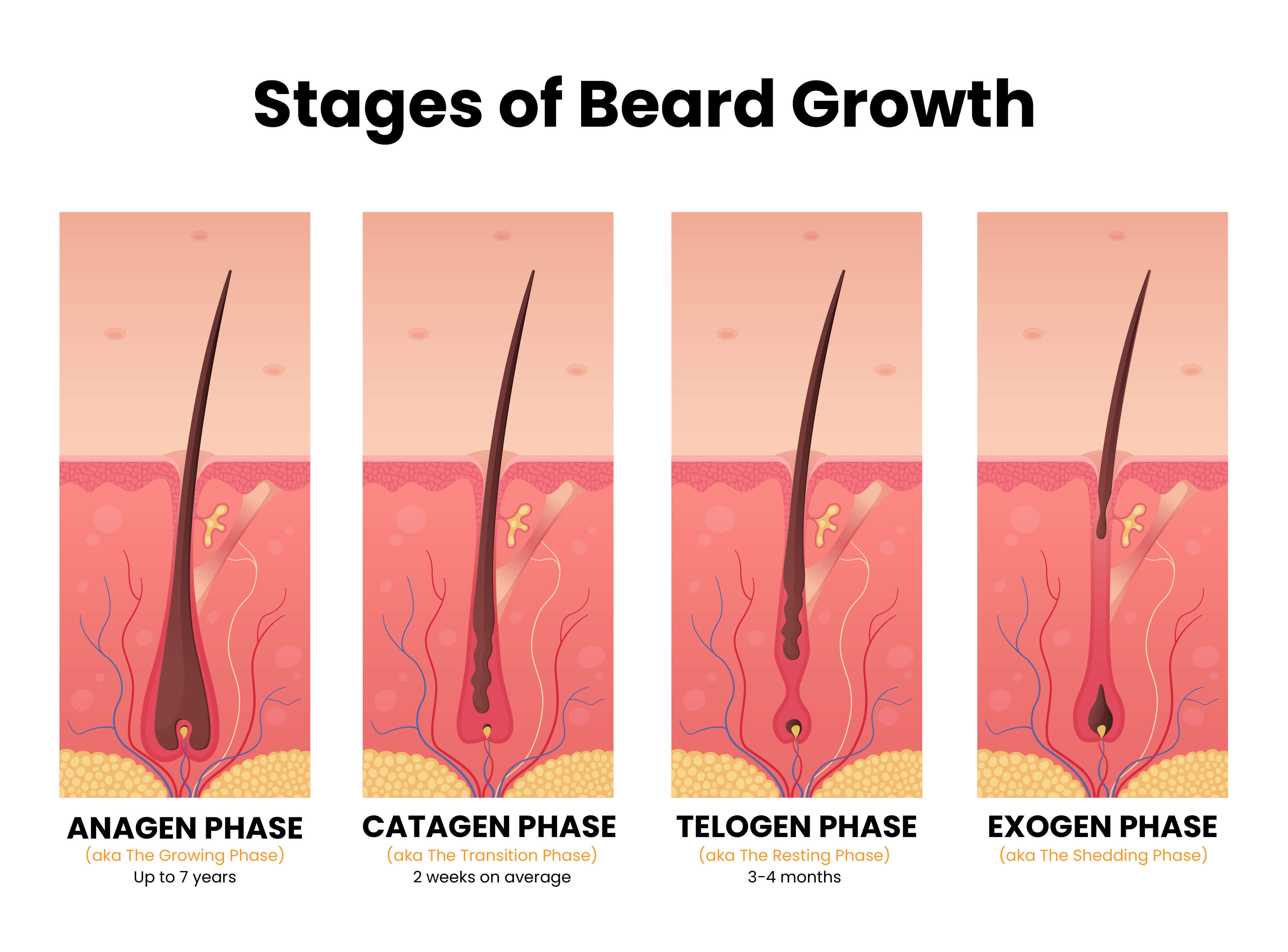

"Stress may also trigger scalp problems, such as dandruff, disrupt eating habits and mess with the digestive system – all of which can have a negative impact on hair" says Anabel. How does this happen? Well, it can raise androgen (male hormone) levels, which in turn can causes hair loss. It's no myth that excess stress can literally make your hair fall out. The extent of this is often down to genes - If you have a genetic predisposition to follicle sensitivity, a hormonal imbalance can affect your hair more than it would someone who does not have a predisposition." 2. "An excess of androgens (which could be caused by an endocrine disorder, such as Polycystic Ovarian Syndrome) can cause hair loss. Androgens (male hormones) are not very hair friendly, and can shorten the hair growth cycle." "Oestrogens (female hormones) are 'hair friendly' and help to keep hairs in their growth phase for the optimal length of time. "Hormones play a huge role in regulating the hair growth cycle" explains Anabel. If your hormones are out of whack the effects will radiate throughout the whole body (and of course, that includes your hair). Hormonal imbalanceĪ hormonal imbalance can lead to multitude of annoying health and beauty issues, from adult acne to weight gain.

Getty Images 8 most common triggers of hair loss. "Excessive daily hair shedding (which is know as telogen effluvium) is not reliant on having a genetic predisposition, it occurs as the result of an internal imbalance or upset, such as a nutritional deficiency, severe stress, crash dieting or an illness" says Anabel Kingsley. This means your hair loss is the result of a trigger. "In these instances, certain hair follicles are sensitive to male hormones – and this sensitivity causes follicles to gradually shrink and produce slightly finer and shorter hairs with each passing hair growth cycle." Explains Anabel Kingsley. There's a chance you're genetically predisposed to hair thinning, which means you may see a progressive, gradual reduction in hair volume. There are different types of hair loss, genetic and reactive. In the meantime, here's everything you need to know. So, if you are losing strands, it's important not to freak out, your mane will recover. "Research shows that at least 1 in 3 women will suffer from hair loss or reduced hair volume at some point in their lifetime," says Anabel Kingsley. It’s important to note that hair loss is a very common problem for women – much more so that people realise. “This cycle continues repeatedly throughout our lifetime and each hair follicle is cycling independently of neighbouring follicles meaning that human hair growth is asynchronised,” says Dr Wong. On a typical head of hair each follicle is at a different stage at different times so you probably won’t notice it happening.
#My hair has taken 7 years to grow skin
Telogen – “During telogen the old hair is gradually pushed up towards the skin surface before it is then shed naturally and replaced with a new emerging anagen hair. Ok, it’s science-y but very cool, basically “each hair follicle on our scalp undergoes three stages of a life cycle,” explains Dr Wong.Īnagen – “This is the active growing phase, which can last between 2-7 years during which the hair becomes longer and thicker.”Ĭatagen – “After anagen, the hair follicle moves into the short transitional phase called catagen when the hair fibre stops growing, followed by the resting phase telogen which lasts around 3 months.” To help break down the possible reasons why you're losing hair we spoke to hair loss expert, Anabel Kingsley, a leading Trichologist at the Philip Kingsley Clinic in London and founder of Get Ahead of Hair Loss, Dr Sharon Wong.
#My hair has taken 7 years to grow how to
The thing is, when it comes to hair loss there are so many potential triggers, which means it can be tricky to pinpoint the exact reason why your strands are falling out, and henceforth, how to remedy the situation. On average we lose around 80 strands a day, if you begin to shed significantly more than that or you notice they aren't growing back, well, that's when things start to get a bit hairy (soz, couldn't help it). But the fact is, hair loss is totally normal. Hair shedding is a part of every day life, yes it clogs up your shower drain, and yes, it means you have to vacuum every other day or your carpet turns into a hairy rug.


 0 kommentar(er)
0 kommentar(er)
